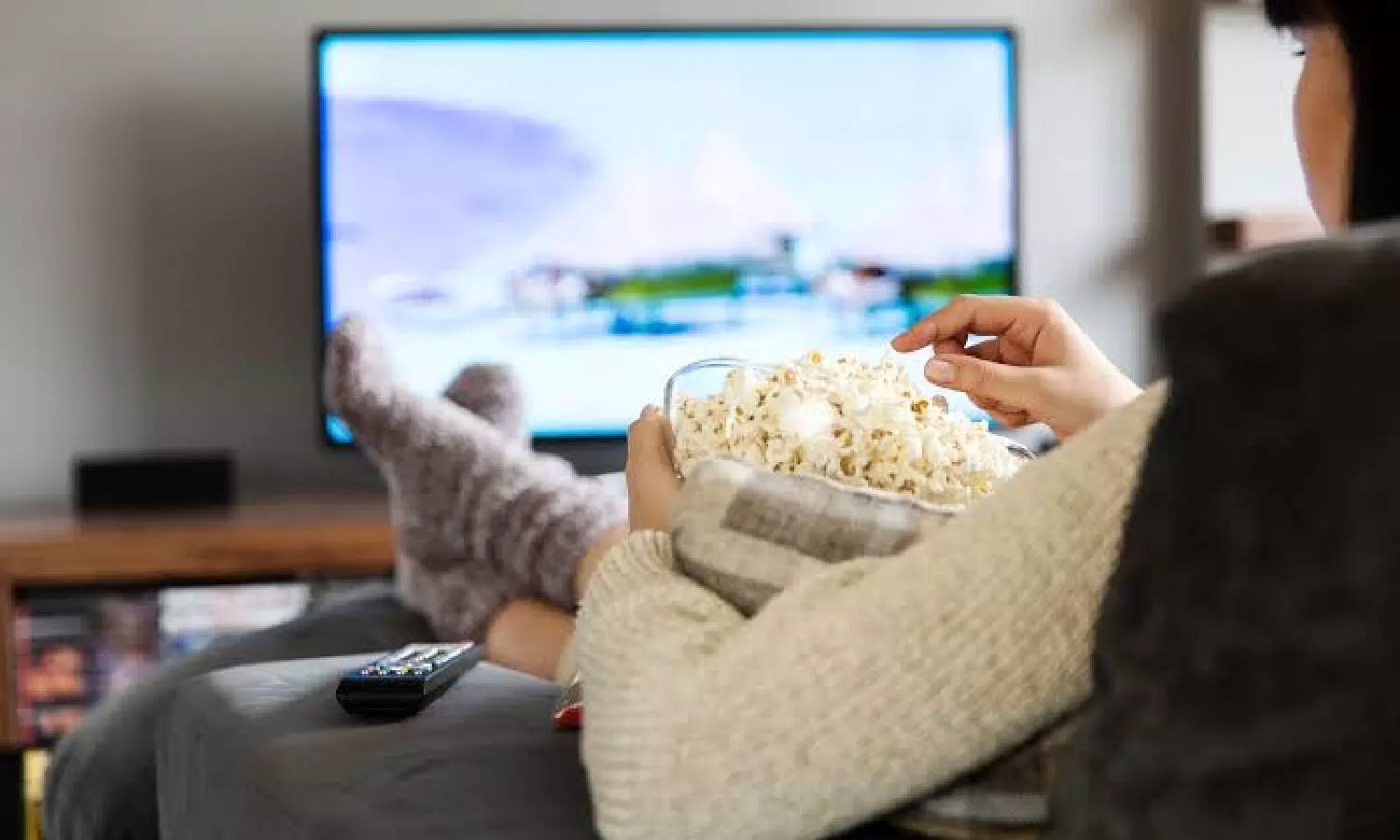Comfort watching: Why viewers are revisiting old films instead of exploring new content
Rewatching movies taps into what psychologists call the ‘mere exposure effect.’
By Newsmeter Network
Comfort watching: Why viewers are revisiting old films instead of exploring new content
Hyderabad: In an era of endless streaming options, many viewers find themselves returning to familiar films instead of exploring something new.
Whether it’s the comfort of a childhood favourite or the predictability of a rom-com, rewatching movies has become a psychological phenomenon with therapeutic value.
The psychology of repetition
Rewatching movies taps into what psychologists call the ‘mere exposure effect.’
This principle, first studied in the 1960s by psychologist Robert Zajonc, suggests that people develop a preference for things they are repeatedly exposed to.
“Rewatching films offers a sense of safety and predictability in an unpredictable world,” says Dr Neha Malhotra, a clinical psychologist speaking to NewsMeter. “When viewers know what’s coming next, their brain experiences less anxiety and more comfort.”
A tool for emotional regulation
Rewatching is more than just entertainment; it can act as a form of emotional regulation. Films provide structured narratives where problems are resolved within two hours, offering viewers a sense of closure.
“Many of my patients report revisiting certain films during stressful times because it helps them ‘reset’ emotionally,” notes Dr Richard Cutinho, a media psychology researcher. “The repeated viewing serves as a grounding technique, similar to listening to a favourite song or rereading a beloved book.”
The comfort of familiar characters
Psychologists also describe this phenomenon as “parasocial interaction”, the sense of friendship or familiarity people develop with fictional characters. Over time, rewatchable movies provide not only entertainment but also a form of companionship.
“Characters become like old friends,” Dr Malhotra “Returning to their stories provides the same emotional benefits as revisiting cherished memories or talking to someone who understands you.”
Nostalgia and memory anchors
Nostalgia is another powerful driver. Studies have shown that revisiting films from one’s youth can evoke positive memories and even reduce loneliness.
A 2021 study published in Frontiers in Psychology found that nostalgic media consumption can boost mood, self-continuity, and feelings of social connectedness.
“Films anchor us to specific points in our lives,” says Dr Cutinho. “When you rewatch a movie you loved at 15, you’re not just watching the film, you’re revisiting who you were when you first saw it.”
Escapism Versus Processing
While some argue that rewatching movies is a form of escapism, experts suggest it can also be a processing tool. For example, rewatching emotionally heavy films can help people gradually confront difficult feelings in a controlled way.
“Viewers sometimes return to emotionally challenging films because familiarity helps them digest themes that were overwhelming at first,” says Dr. Malhotra. “Each rewatch can open up new interpretations, making the process almost therapeutic.”
A social dimension
Rewatchable movies also fuel social bonding.
Families often have “tradition films” they revisit together, holiday classics, cult comedies, or action blockbusters. Sharing these repeated experiences strengthens group identity and collective memory.
“Rewatching a film with loved ones creates rituals,” notes Dr Cutinho. “It gives people shared emotional language, inside jokes, and a sense of belonging.”
Not always harmless
While rewatching has benefits, experts caution against overreliance. Excessive repetition could signal avoidance of new experiences or a coping mechanism masking deeper stress.
“If someone is rewatching the same film daily for months and avoiding other forms of engagement, it may reflect underlying anxiety or depression,” warns Dr. Malhotra. “Like any coping strategy, balance is key.”
Why it matters in today’s context
The rise of rewatch culture coincides with global uncertainty and digital overload. With new films constantly released, the abundance of choice itself can be stressful. Rewatching familiar movies cuts through that decision fatigue.
“Rewatching is a psychological anchor in times of chaos,” says Dr. Malhotra. “It’s not surprising that during the pandemic, streaming platforms reported spikes in viewership of old favourites rather than new releases.”
Beyond Comfort: A Therapeutic Future?
Some therapists are beginning to explore the structured use of rewatching in treatment. Narrative therapy and bibliotherapy already use stories as tools; cinema may be next.
“Guided rewatching of certain films could become part of therapeutic practice,” suggests Dr. Malhotra. “Films offer controlled environments to confront loss, resilience, or relationships. Rewatching deepens that engagement.”
Rewatching movies is not simply about nostalgia or entertainment; it’s a coping mechanism rooted in psychological principles of familiarity, regulation, and memory. Whether it’s a rom-com on a rainy day or a fantasy epic before bed, the films we return to act as personal comfort objects, offering stability in a world that rarely repeats itself.